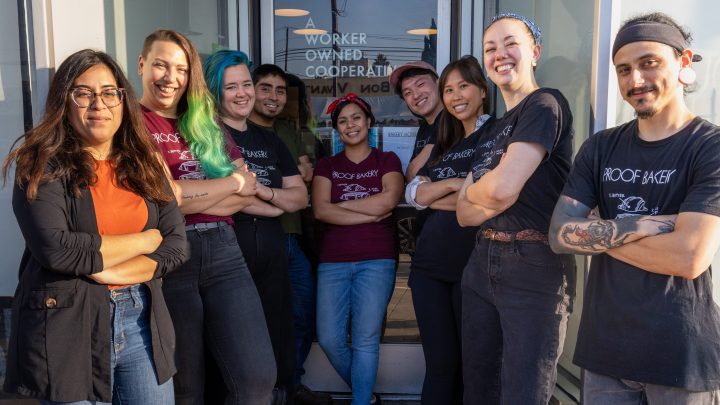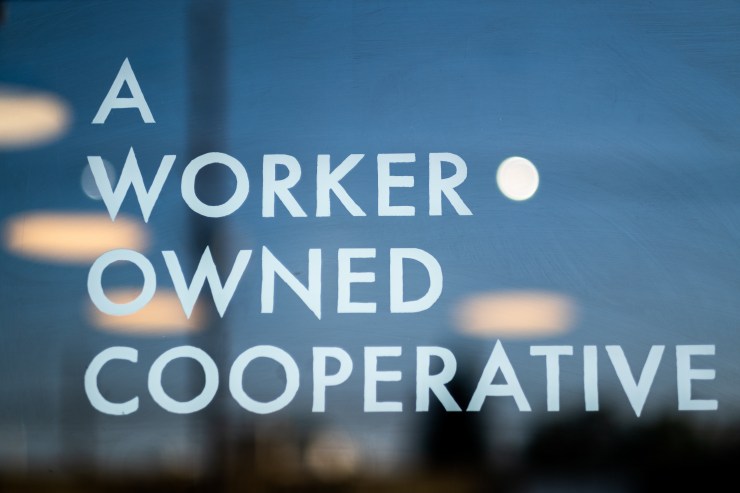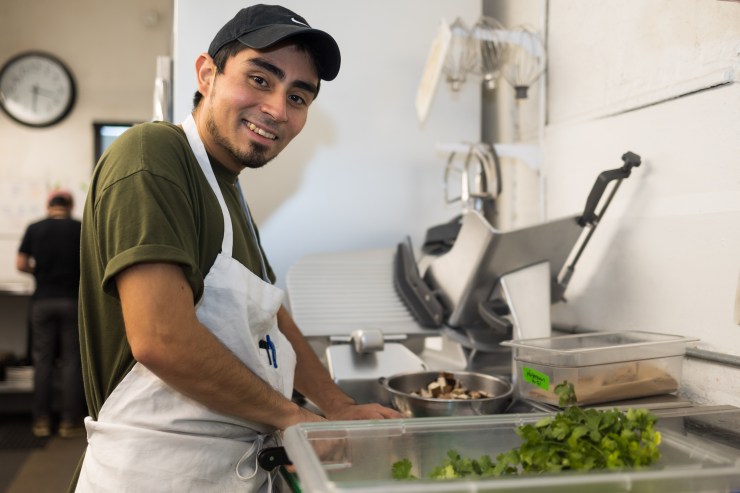
New California law promotes worker-owned businesses

Among the new laws taking effect in California this year is the California Employee Ownership Act, which encourages small-business owners to give their employees a stake in the company. Passed with unanimous support, the law sets up an employee ownership hub in the governor’s office to support companies that want to pursue this business model.
The state currently has 100 worker-owned cooperatives, and 800 more businesses with employee stock ownership plans. But research from the nonprofit Project Equity identified about 350,000 business owners near retirement age who might want to consider consider worker ownership in California.
And they can look to Proof Bakery in Los Angeles for proof that the model works.
When chef Na Young Ma opened the bakery in 2010, she wanted it to be a place where workers could really feel invested in the business. “It definitely takes everyone who’s there to make it work,” she said. “We kind of all work together and assist each other.”
But it took more than a decade to make that dream official. In late 2021, Ma sold the business to the two dozen or so staff as a leveraged buyout — a loan that gets paid back with the profits of the company. Proof Bakery is now a worker cooperative, where the staff controls a majority of the board.
“It’s an old model, but we don’t really have a lot of examples in the U.S.,” Ma said. “So we definitely needed help.”

They got help from Project Equity, which also co-sponsored the California legislation. The organization helps businesses navigate legal requirements, secure financing and train employees for the transition to ownership. There are a lot of misperceptions about the model, said co-founder Hilary Abell.
“People sometimes hear about employee ownership and think, ‘Oh, that’s something for hippies,'” she laughed. “Like, they think of everybody sitting around in a circle trying to decide, you know, what color pencil to buy.”
But she said most worker cooperatives or companies with employee stock ownership plans — another common form of employee ownership — keep the same management structure they had before and pay a fair market price to owners.
“The main difference is that the fruits of the labor are shared broadly with all employees,” Abell said.
The potential benefits of the model have spurred increasing interest across the political spectrum, according to Joseph Blasi, J. Robert Beyster distinguished professor at Rutgers University and director of the Institute for the Study of Employee Ownership and Profit Sharing.
“It’s been very, very hard for the working middle class to build wealth,” Blasi said. “Employee share ownership allows them to get at that part of the American dream where you can own a piece of the rock.”
He’s found that workers in the average employee stock ownership plan build up more than $130,000 in equity. Those businesses also tend to be more productive and have lower turnover. They’re also a great option for the growing number of aging business owners whose families don’t want to take over and who often struggle to find an outside buyer, Blasi added.
“The issue here, really, in terms of barriers, is awareness,” he said.
Programs like California’s aim to address that. Colorado and Massachusetts have launched similar initiatives.

Since Proof Bakery transitioned to a worker cooperative about a year ago, the business has been thriving, and so has the collaboration, according to baker Christian Garcia.
“The mindset kind of took a turn where everyone’s more focused on the success for the business, trying to pull it forward, trying to actually keep the mission values that we have in place,” which — along with making delicious Zimtsternes, or cinnamon star cookies — includes working as a team.
Correction (Jan 9, 2023): A previous version of this story misstated the number of employee-owned businesses in California. There are 100 worker-owned cooperatives and another 800 companies with employee stock ownership plans.
There’s a lot happening in the world. Through it all, Marketplace is here for you.
You rely on Marketplace to break down the world’s events and tell you how it affects you in a fact-based, approachable way. We rely on your financial support to keep making that possible.
Your donation today powers the independent journalism that you rely on. For just $5/month, you can help sustain Marketplace so we can keep reporting on the things that matter to you.

















